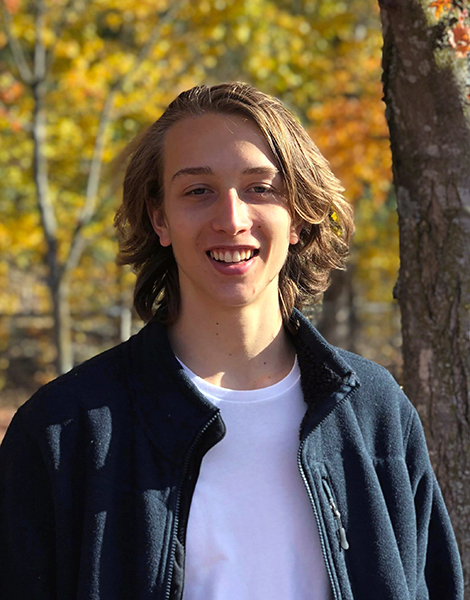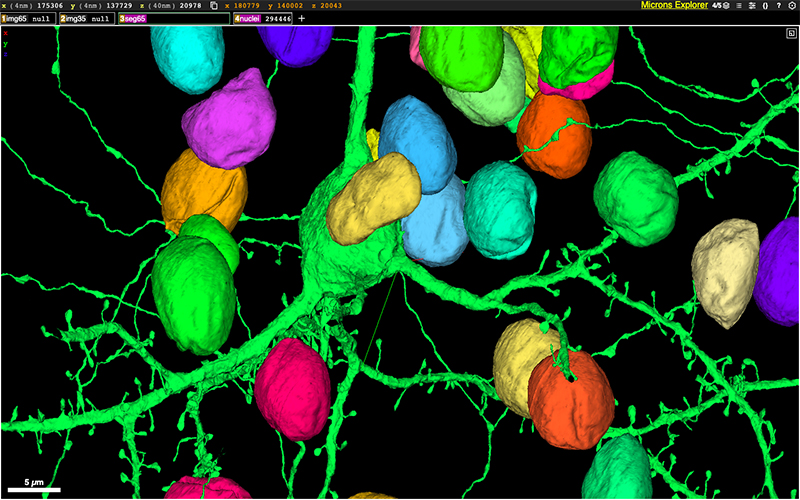When he was a student in high school, computer science major Alex Mallen had what he describes as a “rough” introduction to research. Fortunately, the Bellevue, Washington, native didn’t let that experience deter him at the University of Washington, where as a freshman he decided to try again as a step toward pursuing a Ph.D. after graduation. Mallen’s persistence has paid off in the form of multiple, positive research experiences that have helped him to solidify his plans to enroll in graduate school and, most recently, a prestigious Goldwater Scholarship to support his goal of helping to build artificial intelligence that people can trust to be beneficial.
Of his renewed focus on research, Mallen describes how he cast a wide net and kept an open mind — useful advice for any student hoping to incorporate time in the lab as part of their own undergraduate experience.
“I reached out to professors, postdocs and graduate students whose research I found interesting,” he explained. “I also enrolled in a graduate class in an area I was interested in with my mentor, Professor Kutz.”
Nathan Kutz is a professor in the Department of Applied Mathematics and director of the AI Institute in Dynamic Systems at the UW. In collaboration with Kutz and postdoc Henning Lange, Mallen contributed to the development of a simple and computationally efficient new technique, Deep Probabilistic Koopman (DPK), that enables probabilistic forecasting of complex phenomena thousands of timesteps into the future with a reasonable degree of accuracy. The new class of models, which leverages recent advances in linear Koopman operator theory, returns a probability distribution that assumes parameters will vary quasi-periodically with time. Mallen and his co-authors demonstrated how their approach could be effectively applied in a variety of domains, from forecasting energy demand, to predicting atmospheric pollution levels, to modeling a mouse’s cortical function for neuroscience research.
“I began working with Alex when he was just a freshman, and I’m not sure how you could find someone as talented and creative and productive as he has been so early in his career,” said Kutz. “He spearheaded our work on DPK, for which he provided critical missing theory for how nonstationary data relate to building Koopman embeddings to transform nonlinear dynamical systems into linear dynamical systems. When we applied this work to a challenge data set for power grid monitoring, his new method placed within the top three—whereas most of the other algorithms had been improved over several years. This is but one illustration of the quality of his work and his potential for transformative impact.”
Mallen subsequently contributed directly to neuroscience research working with members of the Allen Institute for Brain Science. There, he helped to construct and analyze the dataset underpinning the MICrONS Explorer, which offers a comprehensive visualization of the mouse visual cortex. The team developed the tool as part of the Machine Intelligence from Cortical Networks Program to pave the way for a new generation of machine learning algorithms based on an enhanced understanding of “the algorithms of the brain.” More recently, Mallen has been collaborating with a group of researchers based predominantly in Europe and members of the grassroots research collective EleutherAI on a project to direct and characterize the behavior of large pretrained transformers, such as GPT-3, using the example of a large transformer pretrained on human chess games.
Mallen aims to combine his passion for research with a commitment to effective altruism, which espouses an evidence-based approach to developing solutions to society’s most pressing problems. To that end, he and other members of the UW Effective Altruism group are working to build a community of people on campus who are looking to apply their expertise to do good.
He believes the approach could be particularly effective for addressing the outsized influence AI could have on society in the future.
“It seems reasonably likely that AI will have a very large impact on the world in the next hundred years, and that this shift will have a large and lasting effect on people’s lives for many generations,” Mallen observed. “The effects of AI systems we design are in theory predictable and controllable, but the challenge of properly steering them gets harder as they become more capable.
“I hope to tackle some of the general problems that may arise when training capable AI systems, such as misalignment with human values,” he continued. “We can already see some of these issues in current algorithms that produce toxic or biased output, or social media that harm discourse and mental health by overoptimizing for engagement.”
Mallen is one of two UW students to be named 2022 Goldwater Scholars by the Barry Goldwater Scholarship & Excellence in Education Foundation. Sharlene Shirali, a junior majoring in neuroscience, joined him among this year’s honorees, who are chosen for their potential to make significant research contributions in the natural sciences, engineering or mathematics.
While he is interested in many disciplines, Mallen chose to pursue computer science at the Allen School as an effective means for making sense of the world around him — and for achieving the altruistic impact that he seeks.
“I’m really interested in understanding things — society, philosophy, math, the world — but also I want to do something useful to other people,” Mallen said. “I think computer science is a really important tool to do both.”
Read the Goldwater Foundation announcement here, and the UW Undergraduate Academic Affairs announcement here.
Congratulations, Alex!



